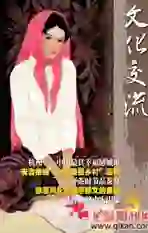Soprano’s Career in China and Abroad
2009-06-05QueWeihang
Que Weihang

Soprano Gao Manhua was one of the 17 overseas Chinese singers of international renown present at the grand opening of the China National Center for the Performing Arts on December 24, 2007. The concert marked the debut of the national theater. About two months later, Gao came back to star in “Thunder Storm”, an operatic interpretation of the namesake 20th-century Chinese prototypical drama. The bravura performance, staged by Shanghai Opera House, was critically acclaimed.
It was not the first performance of “Thunder Storm” and it was not the first performance that starred Gao Manhua as its lead woman. Gao appeared in the premiere of the opera on November 19th, 2001 in Shanghai Grand Theater in partnership with tenor Wei Song.
She told me in an interview at her San Francisco home that she and her aspiring classmates at Shanghai Conservatory once promised themselves that they were going to create an opera with Chinese characteristics. Mo Fan, then a senior student of composition, said that he would adapt the drama Thunder into an opera and that Gao Manhua was to star as the lead woman.
Mo Fan kept his promise. As the 21st century dawned, his adaptation was ready. Gao Manhua, a soprano with international fame for nearly two decades, was invited to star in the new opera. Gao came back. The opera has been improved again and again since then.
Gao attributes her success with “Thunder Storm” to her appearances in more than 20 operas over the last 10-plus years on the international stage. In 1990, Gao rose to stardom and world fame overnight as she starred as Lucia in Lucia di Lammermoor, an Italian production at the Verona Arena Festival. Over years since then, she has worked with many prestigious opera houses around the world and starred as lead woman in more than 20 operas such as La traviata, The Magic Flute, Madame Butterfly, The Elixir of Love, Turandot, Othello, Carmen, The Troubadour, Rigoletto, Otello, and The Puritans. In partnership with many conductors and symphony orchestras of world renown, she has appeared at various world festivals.
Gao regards critic reviews and applause from audiences as encouragements for her to achieve more. She treasures every opportunity to sing. Though she largely appears on international stages, her passion for Chinese operatic arias has allured her back to China again and again.
Gao as a soprano sings in an ethereal voice that touches the heart of listeners and conveys a sense of purity and sweetness. Experts and audiences admire her for her musical talent, but she emphasizes her arduous work. She was a prominent amateur singer in Tianjin and rose to national fame. She was noticed by Wang Kung, a prominent singing artist when Gao was on tour in Japan with Tianjin Song and Dance Theater as a performer on a short-term work contract. Wang Kung enrolled Gao into the Oriental Arts Troupe. One year later, Gao was enrolled by Shanghai Conservatory and began to study singing under Zhou Xiaoyan, a famed vocal professor. In 1985, Gao went to study in Boston University and obtained an artist certificate.
In 2008, she appeared in many performances across China. She sang for a charity event in her San Francisco community to raise money for the quake-hit people in Sichuan Province. She had her recital in Guangzhou in May and donated all the proceeds from the concert to the people made homeless by the Sichuan killer quake.
In April, 2009, she had a recital at Herbst Theater, San Francisco. It was her first solo concert in the bay area of the city where she has lived for more than a decade and performed as a world-class singer on many public occasions.
Her husband Li Heng used to be a pianist of a military arts troupe. After studying in America, he now works a piano teacher. The couple has two sons, one in junior high school and one in primary school. Gaos parents have recently come from Tianjin, China to stay with Gao and her family. □
